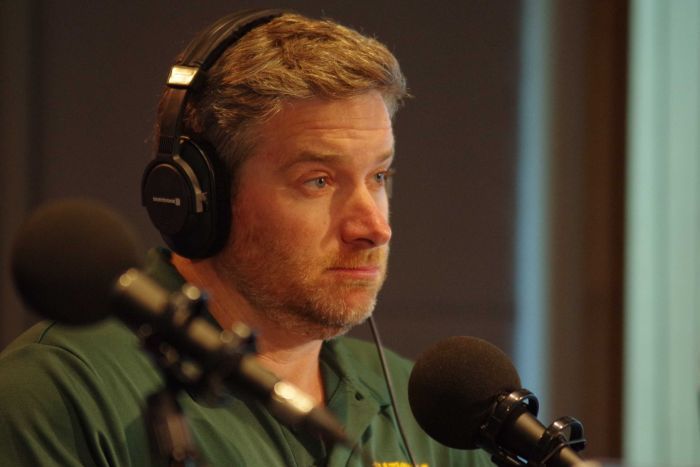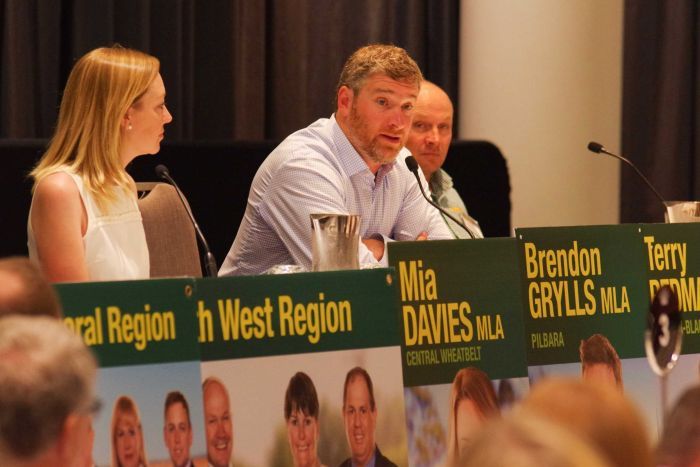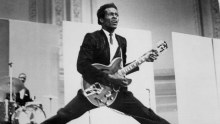WA election: Brendon Grylls and the Nationals' mining tax — masterstroke or mistake?
Updated
 Photo:
Brendon Grylls took to the airwaves this week to accept defeat and defend his mining tax idea. (ABC News: Andrew O'Connor)
Photo:
Brendon Grylls took to the airwaves this week to accept defeat and defend his mining tax idea. (ABC News: Andrew O'Connor)
Brendon Grylls has always considered himself the man in the arena.
After conceding defeat in his seat of Pilbara following last weekend's WA election, Mr Grylls posted a famous quote on Twitter from another tenaciously pugnacious politician, US President Theodore Roosevelt.
The familiar quote lionises the man of action:
"... who spends himself in a worthy cause; who at the best knows in the end the triumph of high achievement, and who at the worst, if he fails, at least fails while daring greatly, so that his place shall never be with those cold and timid souls who neither know victory nor defeat."
Neither cold nor timid, Mr Grylls now knows both.
In 2008, he leveraged his bargaining position as kingmaker to drive a diamond-hard deal allowing Colin Barnett to form a minority Liberal-National alliance government.
The payoff was a billion-dollar-plus legislated commitment to the National's Royalties for Regions program that would quarantine 25 per cent of royalties for spending in regional areas.
Royalties for Regions built halls, pools and apartment blocks, upgraded streets and bankrolled services, redressing years of neglect by successive metro-centric governments.
After eight years, $6.9 billion and 3,700 projects, it stands as the former Pilbara MP's crowning achievement as WA Nationals leader.
But with his Liberal alliance partner struggling in the polls and weighed down by its record debt and deficits, Royalties for Regions became Mr Grylls' template for his next great balance-of-power gamble: a new mining tax.
Grylls targets miners, industry hits back
In August last year, Mr Grylls seized back the Nationals leadership from the man he anointed, Terry Redman, and convinced his party to back his all-or-nothing plan.
It aimed to solve WA's budget crisis by raising a 25 cent per tonne rental fee on iron ore levied against the two biggest miners, BHP Billiton and Rio Tinto.
The fee would rise to $5 a tonne, generating $7.2 billion over four years, with the money to be used to bankroll infrastructure and balance the budget.
To pull off his policy gamble, Mr Grylls was banking on a hung parliament placing him again in the position of kingmaker. It appeared to be a high-risk strategy. And it was.
But when he announced the proposal after taking the leadership, he brushed off doubters, saying they had also dismissed Royalties for Regions as impossible.
"We've resolved on a policy platform. It is aggressive. It is difficult. We will be attacked from left, right and centre," he said.
"But we believe we have got a policy that is justifiable ... and we look forward to prosecuting that over the coming weeks and months."
 Photo:
By the time Mr Grylls launched his party's election campaign on February 3, he was embroiled in a fight with the mining industry. (AAP: Richard Wainwright)
Photo:
By the time Mr Grylls launched his party's election campaign on February 3, he was embroiled in a fight with the mining industry. (AAP: Richard Wainwright)
Mr Grylls anticipated a war of attrition with miners and he got it.
The Chamber of Minerals and Energy (CME) targeted the Nationals with a campaign that cost at least $2 million, warning voters about lost jobs and investment.
CME chief executive Reg Howard Smith insisted on ABC Radio Karratha this week the mining lobby had not specifically targeted Mr Grylls.
"Look, we we would have preferred not to have been in that space at all ... this was not directed at Brendon or at any other National Party person. It was directed at their policy," he said.
But even if it was not the mining lobby's explicit intent to eliminate the tax by eliminating the man behind it, that was the effect of its relentless advertising blitz and publicity campaign.
A difficult tax sell
Notre Dame University political analyst Martin Drum said the voting patterns across the state showed the industry's anti-mining tax campaign had a big impact on the Nationals' vote in mining seats like Pilbara and Kalgoorlie.
 Photo:
Mr Grylls tried hard to sell his mining tax proposal during the campaign. (ABC News: Andrew O'Connor)
Photo:
Mr Grylls tried hard to sell his mining tax proposal during the campaign. (ABC News: Andrew O'Connor)
"They were very specific with their adverts targeting the Nationals. I don't know that they mentioned Brendon Grylls as much, but they didn't really need to because he's the face of the Nationals," Dr Drum said.
"It was a very concerted campaign. They did tip a lot of money into it, they had deep pockets, and clearly it was a decisive factor in the seat of Pilbara."
So the question becomes: Was the proposed tax a potential policy masterstroke that would have seen Mr Grylls become kingmaker in a close election result? Or was it a miscalculation framed by misreading the lessons from 2008 and misapplying them in 2017?
Mr Drum believed the differences between Royalties for Regions and the mining tax were so stark, the analogy was almost irrelevant.
"It's very difficult to sell what amounts to a tax ... that's not the same as selling a spending initiative and that's where it was very different to Royalties for Regions," he said.
"You've got to admire Brendon Grylls sticking to his guns, taking something he believed in an putting to the electorate."
Grylls beaten but unbowed
While some of his Nationals colleagues complained about the mining industry's relentless campaign, Mr Grylls copped the result.
"I've always risked my seat ... [it] is what allows for you to drive an agenda, to drive change, and hopefully — not all people will agree — make a difference," he told ABC Radio Perth on Friday.
A conviction politician to the last, Mr Grylls will now watch from the sidelines as his political opponents wrestle with the budget deficit, rising debt and GST shortfall, the exact problems his mining tax was supposed to help solve.
While in the wake of defeat, the response of the Liberal leadership was characterised by either blame or silence, Mr Grylls faced the result squarely, took complete responsibility and accepted his fate.
It brought to mind a verse from another famous passage, William Ernest Henley's 'Invictus':
"In the fell clutch of circumstance
I've neither winced nor cried aloud
Under the bludgeonings of chance
My head is bloody, but unbowed."
Beaten but unbowed, Mr Grylls departs politics having tasted the sweetness of victory and the sting of defeat, with many now watching and waiting to see what he does next.
Topics: government-and-politics, elections, nationals, wa, perth-6000
First posted









